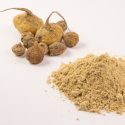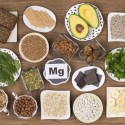9 Worst High-Cholesterol Foods to Avoid
Why Cholesterol Matters
Cardiovascular disease is now the number one cause of death in the U.S., and other developed nations.
Two of the leading contributors to this rise are elevated levels of LDL cholesterol and triglyceride concentrations (1).
Eating a diet low in cholesterol and high in heart-protective properties is essential to lowering your risk of heart disease, and our guide will help you know which foods to avoid, and which are best for your heart.
By knowing the difference between good and bad cholesterol, you can make better choices in your diet.
Knowing which high-cholesterol foods to avoid and which foods containing cholesterol are fine in moderation will help you live a healthier life.
Keep reading to learn more about how to balance nutrient-dense foods that fight inflammation with healthy fats.
It may surprise you to learn that not all foods high in cholesterol are actually bad for your heart.
In fact, foods that promote inflammation are more likely to damage your heart than some types of cholesterol.
While foods like eggs contribute more cholesterol to the average diet, sources of cholesterol like processed meats and full-fat milk are more harmful to your overall health (2).
Cholesterol is not the only risk factor contributing to your risk of heart disease or other cardiovascular problems, but it is a predictor, and highly correlated with other risk factors.
For example, if you are overweight, you are more likely to have high cholesterol, as well.
Losing weight and eliminating the foods that contribute to inflammation can help you lower your overall cholesterol, your LDL cholesterol, and other risk factors that make you vulnerable to cardiovascular disease (3).
Understanding High Cholesterol
You have cholesterol in every cell of your body.
This fat-like, waxy substance is essential for making Vitamin D, metabolic hormones, and bile salts, which allow your body to break down the foods you eat into usable compounds.
Cholesterol also plays an important role in brain health, as your nervous system needs it to create neurotransmitters, which allow your neurons to communicate with one another.
Your body produces the necessary cholesterol for all these functions, but we also consume cholesterol in the foods we eat.
When you have too much cholesterol in your blood, known as serum cholesterol, it begins to build upon the walls of your arteries.
This plaque may lead to a condition known as atherosclerosis, which is the narrowing of these vital blood supplies.
If an artery becomes too narrow, it can have an impact on blood flow or cardiac output.
You can also develop dangerous inflammation or possibly fatal blood clots.
All of these increase your risk of a stroke or heart attack.
While high cholesterol is an important risk factor for stroke and heart attack, other contributing factors are also important to understand (4).
Your risk increases if you also have high blood pressure, if you smoke, or if you have other medical issues such as diabetes.
In addition, your sex, race, and age are all contributing risk factors for cardiovascular disease and complications (5).
Understanding your risks can help you make the best possible choices for your diet and lifestyle.
If you have high cholesterol, you may not even be aware of this, because you likely experience no symptoms.
Because the accumulation of cholesterol on your arterial walls happens slowly, you won’t know it is happening until you experience complications.
When your arterial blood flow is reduced, you can develop coronary heart disease, or have a heart attack, stroke, or angina (chest pains).
Preventing the buildup of this cholesterol and the narrowing it creates is, therefore, important for preserving your heart health.
Our understanding of cholesterol’s impact on the body has changed dramatically over the past few decades.
While we used to believe all cholesterol had the same effects on the body and heart, we now understand that some types of cholesterol are beneficial to your health, while others contribute to the high levels of inflammation that can cause health problems.
Former recommendations for dietary restrictions used to suggest that limiting yourself to 300 milligrams a day of cholesterol was enough to keep you healthy, but more recent evidence indicates that guidelines may not be satisfactory for protecting you against the harmful effects of some types of cholesterol.
Knowing how the two main types of cholesterol, HDL, and LDL, impact your body and overall health is critical for promoting cardiovascular fitness.
Difference between HDL and LDL
Your blood contains tiny packages of cholesterol, called lipoproteins.
They are comprised not only of cholesterol, but also proteins, triglycerides, and phospholipids.
Your body requires two different types of lipoproteins for healthy functioning.
Both low-density lipoproteins (LDL) and high-density lipoproteins (HDL) are needed to transport cholesterol in and out of various cells to repair cellular damage and carry out various metabolic functions (6).
LDLs carry three-quarters of your cholesterol.
LDLs assist in cellular and tissue repair and protection.
HDLs’ primary function is to support the liver in recycling cholesterol, and HDLs comprise just one-fourth of your total cholesterol.
While LDLs are most prevalent, they are also the most damaging to your heart.
These cholesterol compounds lead to the build-up that causes health problems, while HDL actually helps remove unnecessary cholesterol from your blood.
You may have heard LDLs referred to as “bad” cholesterol.
Because these are the lipoproteins that lead to atherosclerosis and other coronary problems, when your blood serum levels of LDL are high, you are at greater risk for cardiovascular disease, as well as peripheral artery disease.
LDL levels should be monitored and kept low.
Their small size means they pass easily through arterial walls, where they attach to arteries and build up over time.
This buildup restricts the amount of space that blood has to flow, leading to possible heart problems (7).
HDL is known as the good kind of cholesterol because it carries cholesterol away from other parts of your body to your liver, which is capable of breaking it down and sending it on for removal from the body.
High levels of HDL means you have a higher capacity for removing excess cholesterol from your blood.
High-Cholesterol Foods to Avoid
Foods that are high in LDL cholesterol should be avoided, or eaten in minimal amounts.
This diet change will reduce the overall presence of LDL in your serum cholesterol, and prevent the future formation of atrial plaque.
Processed Vegetable Oils and Trans Fats
Hydrogenation became a common practice for treating vegetable oils in the mid-1900s.
The resulting trans fats or trans fatty acids are used in packaged foods, margarine, snack foods, pre-packaged baked goods, and for frying fast food.
Trans fats have different properties that give them a better mouthfeel and melting point than untreated fats and keep foods fresher longer.
But this convenience comes with a price.
Trans fats not only raise your level of LDL cholesterol, but they also decrease your levels of HDL cholesterol.
These types of fats serve no nutritional purpose and do significant harm, so they should be avoided entirely (8).
This means abstaining from the convenience and fried foods that use these fats so prevalently.
Snack Foods
Foods high in processed ingredients, salt, and other unhealthy compounds make up a large percentage of the Western diet.
With snack foods so readily available, Americans are eating more than ever and have therefore reached unprecedented incidences of obesity and elevated cholesterol levels (9).
To maintain a healthy weight and keep cholesterol levels low, you should avoid snacking on processed foods like crackers, chips, and fried foods.
Processed Meats
Processed meats, which are usually high in sodium, saturated fats, and cholesterol, should be avoided if you are looking to lower your LDL levels.
The consumption of processed meats like sausage, bacon, hot dogs, and other cured meats are linked to increased risks for cardiovascular diseases and death by stroke.
Uncured and unprocessed meats do not have the same impact on heart health (10).
Refined Sugars
Added sugars in processed foods can increase your blood glucose, raise your LDL cholesterol levels, decrease HDL concentrations, and elevate triglycerides (11).
Nearly three out of four processed or packaged foods in the U.S. contain some amount of added sugar.
Because eating too much sugar can also increase your risk for obesity and other conditions, this greatly impacts your risk for cardiovascular disease and other heart complications.
Avoiding packaged foods with added sugars, as well as baked goods, is a great place to start.
Sweetened beverages, cola, and fruit juices also add a great deal of sugar to your daily intake, so cut those from your diet, as well.
Avoiding sugar can be hard when you have been consuming it for so long because you develop an addiction to it.
But your heart and your body will thank you.
Dairy Products
Eating or drinking fermented dairy products like yogurt and kefir has been shown to help protect your heart and other systems (12).
However, most conventional dairy contains high amounts of fats, including LDL cholesterol, that are not good for your heart health (13).
Avoid dairy fat when possible, and decrease consumption of full-fat dairy products to reduce your overall cholesterol levels.
Excess Alcohol
While moderate alcohol consumption of one drink per day can help protect your heart, drinking too much raises triglycerides and elevates your blood pressure, which impacts your heart.
Heavy drinking is associated with a number of health problems, including cardiovascular disease, stroke, diabetes, and more.
Simple Carbohydrates
Some foods can actually lower your HDL or good cholesterol.
Refined carbohydrates, like those found in tortillas, white bread, pasta, and other highly-processed grains, raise blood glucose and lower HDL levels.
Those with diets high in these types of foods are more likely to suffer from cardiovascular or metabolic disorders, to be overweight, and to have high levels of cholesterol (14).
Opt for whole-grain versions, as well as sprouted grains and fruits, instead of those made from highly-refined flours and grains.
High-Cholesterol Foods Safe in Moderation
Not all foods high in cholesterol have a negative impact on your health.
The following foods, when eaten in moderation as a part of a healthy, whole-foods diet, will not significantly raise your LDL cholesterol levels.
Grass-Fed Beef
Not all meat products are alike.
Research supports that eating lean chicken and beef is a good choice to maintain healthy levels of serum cholesterol, LDL, HDL, and triglycerides.
Lean cuts of grass-fed beef can, therefore, be included in a heart-healthy diet, because the levels of saturated fats are not significant enough to warrant concern (15).
Eggs
Over the past several decades, the public has received mixed messages about egg consumption.
The latest research supports the understanding that eggs are an essential part of a healthy diet and, while high in cholesterol, can raise levels of HDL cholesterol (16).
A 2008 study examined the impact of a low-carbohydrate diet on 28 overweight men.
Half of the group’s diet included regular egg consumption, while half included a cholesterol-free egg substitute.
While a significant portion of participants lost weight and experienced reduced levels of LDL and triglycerides, those who ate eggs had increased levels of HDL (17).
When used in moderation and as a part of a heart-healthy diet, eggs can be beneficial in protecting your heart and health.
Polyphenols
The antioxidants and other flavonols found in dark chocolate can reduce cholesterol levels and promote a healthier body.
The polyphenols present in dark chocolate are known to increase levels of HDL, which can reduce arterial plaque (18).
How to Lower Cholesterol Naturally?
In addition to avoiding specific foods, you can improve your overall cholesterol levels and your ratio of LDL to HDL with a few additional changes to your diet and lifestyle.
The following are suggestions for how to lower your cholesterol naturally, helping you avoid the use of prescription medications that often have serious side effects.
Eat More Fiber
Foods high in fiber, particularly soluble fiber, are effective at lowering your cholesterol levels. Soluble fiber is found in foods like vegetables, fruits, beans, oats, and barley.
When you eat these types of fiber-rich foods, the soluble fiber binds to bile acids in your digestive system and removes them from your body.
Because your body uses cholesterol to make bile acids, this decreases the amount of cholesterol in your blood that your liver has to remove to make more bile acid.
Soluble fiber lowers LDL, and eating up to ten grams per day can have a significant impact on these cholesterol levels (19).
Eat Less Meat
Choosing plant-based proteins over meat provides you with the essential nutrients your body needs without the added cholesterol, which is only found in animal products.
Excellent sources of plant proteins include lentils, seeds, nuts, and beans, like soybeans, pinto, black, kidney, and white beans.
These legumes and other plant-based proteins support healthy levels of blood glucose, lower your risk of certain types of cancer, and lower your total and LDL cholesterol levels (20).
Maintain a Healthy Weight
When you are overweight, your body has to work harder to pump blood and maintain normal functions.
Increased weight leads to higher likelihood of Type 2 diabetes, high cholesterol, elevated blood pressure, cancer, and cardiovascular problems, including stroke and heart attack.
Losing weight and keeping it off is, therefore, crucial to overall health and well-being.
Consider Supplements
There are a few natural supplements that can help you lower your cholesterol levels and improve your heart health.
- Plant sterols are found naturally in many of the heart-healthy foods listed above. You can boost your cholesterol-lowering efforts by taking one to two grams of plant sterols each day to lower your LDL cholesterol levels. Look for supplements without added ingredients and chemicals.
- Psyllium is a form of soluble fiber widely sold as a supplement or laxative. There are many name and store brands of this type of fiber supplement, and all are excellent at lowering LDL cholesterol levels. Taking ten grams of fiber supplement each day can have a significant impact on cholesterol levels in just a few months.
Exercise
Becoming more physically active will help your body regulate your hormones and metabolic processes more efficiently, and will make better use of the fuel from food.
When you are more active, you have more muscle mass and less fat, which can lower your cholesterol and blood pressure and improve your overall health and fitness.
Exercise is a crucial component of any heart health plan, so get out there and get moving.
Precautions
When you avoid the foods that are high in cholesterol, you can decrease the levels of this harmful compound in your blood.
In addition to avoiding high-cholesterol foods that raise your LDL, you should eat more foods that increase your HDL, as well as foods that help lower your overall cholesterol levels.
Combining a nutrient-dense diet with exercise and other positive lifestyle choices will significantly improve your heart health.
Every animal, including humans, makes cholesterol as a part of healthy metabolic processes.
Because we also get cholesterol from the foods we eat, it is therefore vital we don’t eat too much of this harmful compound, which can damage our body’s arterial walls.
Keeping cholesterol levels in check is one way to ensure that your cardiovascular system continues to work correctly for years to come.
When your arteries become blocked by plaque caused by cholesterol and other lipids in your blood, blood flow is restricted.
Plaque can lead to dangerous blood clots, strokes, or heart attacks.
While you want to have a healthy and protective level of HDL, or good cholesterol, in your system, you want to keep your levels of LDL, or bad cholesterol, low.
While not all foods high in cholesterol are bad for you, avoiding those high in trans fats will be helpful to stay healthy.
Avoid processed and packaged foods, highly-processed foods, and foods containing high amounts of sugar.
Eating a whole-foods plant-based diet can lower your overall cholesterol, and contribute to a healthier heart and body.
Adding lifestyle changes like exercise, quitting smoking, and managing stress can also help you keep your heart healthy.
FDA Compliance
The information on this website has not been evaluated by the Food & Drug Administration or any other medical body. We do not aim to diagnose, treat, cure or prevent any illness or disease. Information is shared for educational purposes only. You must consult your doctor before acting on any content on this website, especially if you are pregnant, nursing, taking medication, or have a medical condition.
HOW WOULD YOU RATE THIS ARTICLE?






